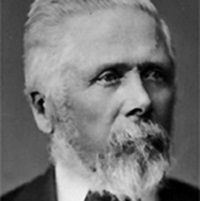

by Maurice Y. Michaud (he/him)

These days, whenever an election is called, we expect at least a few candidates to step up for each race to represent their party or themselves personally if they choose to (or must) run as independents. That's even when there is little doubt what the outcome will be. As one of literally thousands of examples: When Brian Mulroney became the leader of the federal Progressive Conservative Party in 1983, Elmer MacKay resigned his (at the time) staunchly Conservative seat of Central Nova to allow his new leader to run in a by-election. Six candidates including Mulroney ran, and the surprise would have been if he had suffered the same fate as Arthur Meighen under similar circumstances in 1942.
When a seat is won by acclamation today, it is likely due to the lack of engagement in the political process within the jurisdiction. For instance, 5 of the 22 seats in the non-partisan Nunavut legislature were won by acclamation in the 2021 general election, and 3 of 19 in the Northwest Territories in 2019 and 2023. I would note that voter turnout has traditionally been very low in northern ridings in all jurisdiction except the Maritime provinces, although that is more likely due to geographical constraints than the paucity of candidates on offer or even the non-partisan nature of those territorial assemblies.
In the past, however, one could win a seat by acclamation because it was so clear that nobody else stood a chance of winning it. In fact, the Québec Liberal Party won the 1900, 1904 and 1916 general elections before they were even held due to the number of seats it had already won by acclamation! In modern times, major opposition parties at least attempt to mount a challenge even when they're facing a political dynasty.
At this point you might be wondering who's this gentleman portrayed on this page, because it's certainly not Mulroney, MacKay or Meighen! No, it's François Bourassa, uncle of Henri Bourassa who is perhaps more well-known today due to having his name on one of Montréal's métro station. But "Uncle François" was the Liberal member of Parliament for St. Jean from 1867 to 1896, and he won his seat by acclamation in 1872 and 1874. His nephew Henri also won once by acclamation, namely in the 1900 federal by-election in Labelle that he triggered in protest of Canada's participation in the Boer War.
There were far more electoral events in Canada up until the middle of the 20th century, and many of those were won by acclamation.
Given that there has been 1,966 confirmed races won by acclamation since 1866, you might want to use this search engine to get a list of only those that interest you. You may also find the 254 unconfirmed races, which were likely not won by acclamation but for which the data is missing.